Progressive Prayer Journal Prompts
by Michelle Bulsiewicz
If I’m being honest, my prayer habit has almost completely died off
this past year or two. There might be many reasons for that, but part of it is that I realized most of the time I was praying just to do it, just because I was supposed to, and not actually getting much out of it. Once in a while, I would feel like I really needed to talk to God and those prayers would be meaningful, but the vast majority were just a rote recitation of words.
I think following the prescriptive model I was raised with in the LDS church has held me back from daily significant interaction with deity in some ways. Speaking to someone I can’t see from inside my brain, using archaic language, and putting only my best foot forward—I found the task nearly impossible to focus on for any amount of time, let alone find meaning in it, unless I really had something to say. I tried saying prayers out loud, but all my life my bedrooms have been shared with siblings, roommates, mission companions, or a husband, all of whom I love but have made saying private prayers out loud difficult. Even when I did happen to find myself alone enough to try it, still I would manage to get distracted.
I needed to be able to branch out and try something different that would work for my brain. I was drawn to yoga and meditation as a young adult, and still practice almost daily, but have always kept it in a separate box from church and prayer. I’ve also always kept a regular journal, but never really used it as a way to commune with God.
It was Susan Hinckley who actually gave me the idea to start writing down my prayers when she talked about doing it on one of her podcasts.1 Writing has always been my greatest strength and a way for me to organize my thoughts, parse through my emotions, and find clarity. The minute I realized I could use my strength to resurrect my prayers, I felt illuminated. Why hadn’t I thought of it before?
Still, it took me a while to actually try it. I’m not sure why, but recently the motivation finally struck me and I decided to look up prayer journal prompts online to get me started. I found many—but all of them rather, well, orthodox. I’ve been spending so much time recently immersing myself in progressive Christian authors and thinkers I found this disappointing. There are many other resources out there. Richard Rohr, for example, provides many beautiful meditations, but not specifically journal prompts like I was looking for.
I’ve been able to make the more orthodox prompts work for the most part by adapting them as I wish—something I’m very used to doing at church anyway. So far, prayer journaling has been a revelation. Possibly I could have found more progressive prompts if I dug a little deeper, but instead it occurred to me that I could write my own. I could take what I’ve learned from all the books and podcasts I’ve been consuming and create the list I’ve been seeking. There might be a lesson in there somewhere.
I thought I’d share my list here in case it could be helpful to you as well. Maybe it will help you think of more. I hope we all can find a way to connect with the divine creator of the universe however it works best for us.
15 Progressive Prayer Journal Prompts:
How have I seen the divine recently in the natural world?
How have I managed to connect with the divine feminine in my life? How could I do it more?
How can I follow Christ’s example more in uplifting the oppressed around me?
How can I extend more grace to myself and others?
How can I better see Christ’s love for everyone, especially those not like myself or with whom I may disagree?
What are some ways I want to expand beyond the traditional religious model I grew up with?
What are some things I want to keep from the traditional religious model I grew up with?
What are some ways I could expand my idea of God?
How has connecting with God in my life benefitted me?
How can I do better at not judging others?
How can I find more ways to be still and create peace within myself?
How can I expand my view of scripture to be more inclusive and beneficial to everyone?
How can I sit with my emotions, good or bad, and let myself express them in a healthy way? How can I let God help me do that?
Who is someone who inspires me on my faith journey? What is it I admire about them?
What is something I’ve been struggling with lately? How can I have more patience and grace for my struggle?
Originally from San Jose, California, I now reside in Salt Lake County with my husband and two boys. I am the former assistant arts and entertainment editor at Deseret News and, in what little spare time I have, I like to write novels, read obsessively, and practice yoga. — Michelle
Patriarchy and Trees
by Tawna Allred
For as long as I can remember, I’ve felt a pull to the mountains.
As a little girl, they scared me. I’d walk to the edge and turn around to the home my father built. The trail was thin that slid into the dark timber and disappeared.
You’ll be swallowed too, I’d think.
When the town I grew up in became too small and my heart too restless, I ran to the city filled with its clean stores and dirty streets. It was exciting.
Years later, I’d be back in the small town where I grew up, kids in tow. A pent-up frustration had been building in me, although I didn’t know why.
The only thing that made sense, and no sense at all, was to finally follow the thin trail into the dark where sunlight didn’t seem to have as much power.
So I did.
For over a decade I’ve walked and run and cried and laughed among the trees. I’ve turned my face upward as rain dripped and wind whipped yellow leaves to the forest floor. I’ve stopped to listen to owls out past the first light of morning, stellar jays make rare appearances, and the incessant rap of the woodpecker hunting for food. I walked through the evergreens with my girlfriends and family, awed by the dew and wild columbines. Above our heads, the trees stood guard.
HOW I GO TO THE WOODS
“Ordinarily, I go to the woods alone, with not a single friend, for they are all smilers and talkers and therefore unsuitable.
I don’t really want to be witnessed talking to the catbirds or hugging the old black oak tree. I have my way of praying, as you no doubt have yours.
Besides, when I am alone I can become invisible. I can sit on the top of a dune as motionless as an uprise of weeds, until the foxes run by unconcerned. I can hear the almost unhearable sound of the roses singing.
If you have ever gone to the woods with me, I must love you very much.”
— Mary Oliver
I’ve sat on hillsides looking at the depths that can’t be reached, and it was there, face turned upward, I unleashed my most fervent prayers. For years I understood I was walking on holy ground, but last summer I uttered words that were beyond me.
Hello Mother.
At that moment my hunger for her became apparent.
Nowhere in my life had anyone talked about Her.
I’d grown up where every spiritual figure I’d known had been a man. Eve was the only woman with significant mention. To some she brought the downfall of Man. To others, she was the one brave enough to do what Adam wouldn’t. But it was men who then continued to see God and part seas and hand out cards for membership to the Holy of Holies.
Women were there to uphold this order for safety and esteem.
Mother, why have you been lost to me for so long? Why did they hide you?
The wind picked up my question and carried it to the top of the trees, where it tickled leaves and made them shake with laughter.
“Let me tell you something, Toula. The man is the head, but the woman is the neck. And she can turn the head any way she wants.”
— Maria Portokalos, My Big Fat Greek Wedding
When Dave asked my dad for my hand in marriage, my mother and I huddled together and listened in another room. If you asked me about it today, I’d wonder at this bizarre tradition. Why did he not need to ask my mother? But I didn’t have the language then…just the propensity to will my way despite the rifts it caused in the people around me. While I don’t claim this trait was always used in the best way, it was the North Star that guided me. On this particular occasion of formal nonsense, my father spent an hour divulging that if Dave wanted me, he’d have his hands full. But he had his blessing.
Dave didn’t fully comprehend what that meant, and neither did I.
Together we rode the waves that came, and as I voiced opinions, he listened. It was an alien world, the way he heard me. Sacred and messy, we keep walking the earth hand-in-hand.
What is it about partnering that is maddening and exhilarating? Where do we start and end? Fusion is heat and madness and facing the darkest parts of your soul. When you emerge from the ashes together, it’s a feeling unlike any other.
Sophia, Greek god of Wisdom, is a confusing figure in Christendom. Her origin is a mystery, as is her disappearance. I know Divine Feminine is real. I’ve found Her in the white aspens and rushing water of Spring. Giving Her a name seems to lessen who she is. Maybe her mystery is her power.
“Do not hate my obedience
And do not love my self-control.
In my weakness, do not forsake me,
And do not be afraid of my power.
For why do you despise my fear
And curse my pride?
But I am she who exists in all fears
And strength in trembling.
I am she who is weak,
And I am well in a pleasant place.
I am senseless and I am wise.”
— The Thunder, Perfect Mind
Why did it take so long to find you? Would every woman be better if they knew who you were? In the tradition of the religion given to me, a young boy goes to a grove of trees to pray.
Everyone focuses on the events that unfolded: two male personages appear, showing an embodied God and Christ.
A revolution begins.
For a time, a black and white photograph of the grove hung in my house. Below it, it said:
C’est l’endroit qui a change le monde. Laissez-le changer votre vie.*
We move past the most important part of the story. The boy was always surrounded by trees.
*This is the place that changed the world. Let it change your life.
I am a multi-passionate creative. I draw and paint, design homes, take photos, arrange words, run mountains, and work with horses. I live in Wyoming with my husband, Dave, and we have three horses, two dogs, and one daughter left at home. My son just left for the Everett, WA mission, and my oldest daughter is a junior at USU and is getting married in November. I have dual degrees in oil painting and interior design and have been doing that professionally for the last 15 years. I've been a lifelong member of the LDS church, but have lived the last ten years on the edge of the inside. — Tawna
Women and Callings
by Kayelynn B.
While listening to At Last She Said It’s bonus episode/rerun about
the priesthood, I was struck once again by the question I’ve had for years—and a question Susan and Cynthia spend a bit of time discussing: Why are certain callings ONLY for men or ONLY for women? Why can’t a woman be the ward mission leader or the ward temple and family history leader or sit on the high council? Why can’t a woman serve as Sunday School president? Why can’t a man be the Primary president? Even my husband, who is very traditional and gets a little squirmy when I talk about sexism in the church, scratches his head when I bring this up.
I started really noticing this as a missionary when I had to work with ward leadership callings I didn’t know even existed until then, like ward mission leader or temple and family history leader. And I started to wonder…why on earth can this calling not be held by a woman? I served in two YSA wards for six months, and that was also a brand new experience for me. Committees created a myriad of callings that family wards don’t have. And usually, each committee has two co-chairs, a man and a woman. A member I got close to, who became and continues to be one of my best friends, served on the temple and family history committee. She often talked to me about the struggle she had being one of the co-chairs.
Even in the YSA ward, the temple and family history leader has to be a Melchizedek priesthood holder. But the bishop wanted it run as a committee with co-chairs. It ended up being a strange sort of limbo for my friend. Her official title on LDS Tools was committee member, not co-chair. Her co-chair went to monthly stake priesthood meetings where they talked about goals and numbers, and often he would forget to pass on notes to her or keep her in the loop. It really frustrated her.
And again, I thought…why? Why is that a priesthood calling? I’ve read the section in the Handbook about the duties of a temple and family history leader. It says the calling has to be filled by a Melchizedek priesthood holder. But it doesn’t state any keys being given, and none of the duties seem like they would need keys, or even the priesthood.
I had a bishop I served with as a missionary whom I absolutely adored. He was younger and a very progressive thinker. He was very blunt with people about what he thought was false doctrine or “misunderstood doctrine.” So I had the trust and courage to ask him his opinion on this, specifically the family history leader. His only thought was that it might have something to do with the priesthood duty to correct false doctrine. I still don’t understand this particular piece of information. But even after saying this, he said that at the end of the day, it’s most likely just what’s always been done, and probably isn’t doctrine. Hearing that from a bishop was such a bolstering thing for me—especially as a missionary who started my ‘questioning church teachings and practices’ journey on my mission.
Since then, I’ve experienced, on ward or stake levels, leadership making decisions that attempted to sort of loophole around these priesthood requirements. The same bishop did several things that I loved. This was just after the General Conference where they announced that ward YM presidencies were going away, and the bishopric was going to take those roles. This bishop took that to heart and told his Relief Society and Elders’ Quorum presidents that they were in charge of the ward, and he and his councilors were going to spend their time on the youth. If they needed help, they could bring their needs to ward council. But they were in charge.
On top of that, he called all new ward missionaries—and they were all women. The ward mission leader was still a man, but all ward missionaries were women, younger mothers in their thirties. As a sister, logistically, this was beautiful, because we had a huge pool of women to text if we needed someone to come to a lesson, etc. It was also powerful to sit in a room full of women throwing out ideas and volunteering to coordinate things with us. We did things in those few weeks that I never would have thought of. These women knew their neighbors, brought ward activities into their neighborhoods, and threw all their efforts into it. It was the most I’d ever worked with ward missionaries, and it was brilliant.
The other massive thing that I know about—but unfortunately haven’t experienced—happened in one of those YSA wards I served in and later attended when I moved back to the area after my mission. This happened after I moved out, but the best friend I mentioned earlier? She’s the ward Relief Society president there and keeps me updated on the goings on. The bishop I served with was released and called as the stake president. Recently, the church encouraged YSA stakes to call Young Adults to ward and stake leadership positions, including high council.
The stake president knows the stake president of the YSA stake right next door, and he had implemented a stake women’s council in his stake and my best friend’s stake president asked if he could steal the idea. So, he called a stake women’s council to serve right beside the high council. They speak on high council Sunday and attend stake meetings. Part of this stemmed from the fact that in the YSA, there are fewer female callings than male, because there’s no Primary and no YW. But even then, I tried to imagine this in family stakes, and it made so much sense in that situation as well. Thinking about seeing the women in my ward and stake as councilors to the stake presidency gave me holy envy.
Just as Susan and Cynthia talked about in their episode,2 there are ways to work in the system now, and there are easy changes that could be made to the system that would give women just a little more room at the table.
Hagar’s God
by Stacy Henrie
Can you hear me, God?
In my wilderness
Like Hagar of ancient days.
I don’t recognize
This landscape anymore,
And parts of me
Are no longer familiar either.
Can you see me, God?
What does my journey
Look like from here?
Where am I headed?
I feel so weary,
My thirst for learning,
Study, growth
Gone dry.
Can you hear me, God?
Can I rest a while,
Beside this bush, and wait
Before I take another step?
I still believe You Are
The God who hears
The God who sees
As You did Hagar.
She, too, heart heavy,
Cried in a wilderness,
Weary, frightened,
A future ahead she could not see.
But You heard and saw
Hagar and her bright future
Beyond the fear and exhaustion
Of the wilderness.
Can you see me, God?
In my wilderness
Like Hagar of ancient days.
I believe that You
Hagar’s God
Can, Will, Does
Hear and see me too.
I am the author of more than a dozen inspirational historical romance novels and novellas. I live in Utah with my husband and three kids and love to hike in the nearby mountains, read, write, do graphic design, and dabble in photography. Now that I’ve reached mid-life, I’m also eager to embrace authentic, creative, slower living. — Stacy
It’s Either All True or It’s All Untrue:
An Unhelpful Idea
by Miki
If you grew up in the Church of Jesus Christ of Latter-Day Saints,
you have probably at some point heard a line of reasoning like this:
“If the Book of Mormon is true, then Joseph Smith is a prophet, and that means the Church and everything said and done by the Church since then is inspired and true.”
Though well-intentioned, this kind of logic can actually weaken our faith. It discourages us from asking further questions or growing our testimonies about each individual topic. It adds extra pressure on the faith-seeker to receive an answer from God quickly because so much hinges on that answer. And, it can cause confusion and doubt if the answer doesn't come when expected or comes in a different way than expected. In short, it is not helpful for our spiritual growth to create an all-or-nothing situation, especially with something that has such high stakes, like our religion.
Now consider the inverse of that statement: “If anything ever said or done by the Church is NOT inspired or true, then the Book of Mormon is not true, and Joseph Smith is not a prophet, and everything about the entire Church is false.”
Does that sound like something you would ever hear a Church leader say? Probably not. We all know there are things the Church has said and done in the past that we no longer believe or endorse. To say that if one thing is untrue all of it is untrue would be illogical. But unfortunately, that is the implied flip side of the “if X is true then Y is true” statements we hear so frequently.
In my opinion, this mentality is why many people leave the Church who may have otherwise stayed. This type of logic encourages a culture of black-and-white thinking with little room for nuance or relevant contextual information. For example, if someone finds issue with one piece of Church history, they may feel that they must find issue with the entire Church altogether and then leave—and honestly, I couldn’t blame them for thinking this. The all-or-nothing paradigm has become a huge part of our church culture, even to the point where the “it’s either all true or it’s all untrue” concept is the subtext of many peoples’ testimonies. It’s why those who currently believe in the “all true” part of this mentality may experience so much anxiety or anger when faced with criticisms of the Church— if any of it crumbles, it all crumbles, and that is terrifying!
Basically, the all-or-nothing mentality encourages us to build our faith like a house of cards. If one card falls down—say, you read some questionable things that past prophets have said or done then the whole house of cards comes down too. That just doesn’t seem healthy, stable, or conducive to spiritual growth. It also seems like an unnecessarily stressful way to live.
Instead, we can (and should!) be asking God about every individual piece of our testimony. It’s what God invites us to do in the scriptures. We can ask God about each point of doctrine or Church-taught principle we come across, and then receive spiritual witness of its truth (or untruth, in some cases) for ourselves. We don’t have to accept or deny the entire Church, its history, and its culture wholesale.
Not only does this approach allow our entire faith to not hinge on one thing, but it also lets us become very practiced at speaking with God and receiving spiritual witness of truth. It allows us to learn line upon line, precept upon precept. It mentally frees us to consider everything we hear in the Church and determine its truth for ourselves, less likely to be led astray or coerced into believing something that is more cultural than doctrinal. But most importantly, it gives us the opportunity to have a better relationship with God and our Savior rather than the Church organization (which is a wonderful organization, but is still only a vehicle to obtaining a greater relationship with God).
I hope that we as a church culture can move away from the all-or-nothing, black-and-white style thinking and embrace a true reliance on the Spirit and all the nuance that may bring. There are many parts of our church’s traditions that aren’t as inspired and true as others, and there are definitely parts of our church history that aren’t as squeaky-clean as we wish they were. But that doesn’t mean we must either believe everything 100% or reject it all 100%. We can sit in the uncomfortable, in-between growth space where we are constantly asking questions and relying on the Spirit to teach us. In fact, that may be exactly where God wants us to be.
I am an active member of the Church of Jesus Christ of Latter-day Saints. I am also an LGBTQ+ ally, advocate for women, and an avid asker of questions. Professionally I am a video game developer, and after work I enjoy baking, designing enamel pins, making fairy houses, collecting sparkly objects, and watching so-bad-it's-good movies. But above all, I love spending time with my spicy 2-year-old daughter who loves pigs, monster trucks, dinosaurs, and makeup! — Miki
Say it Louder
(ALSSI voicemail)
ALSSI Episode 59: Speaking Up




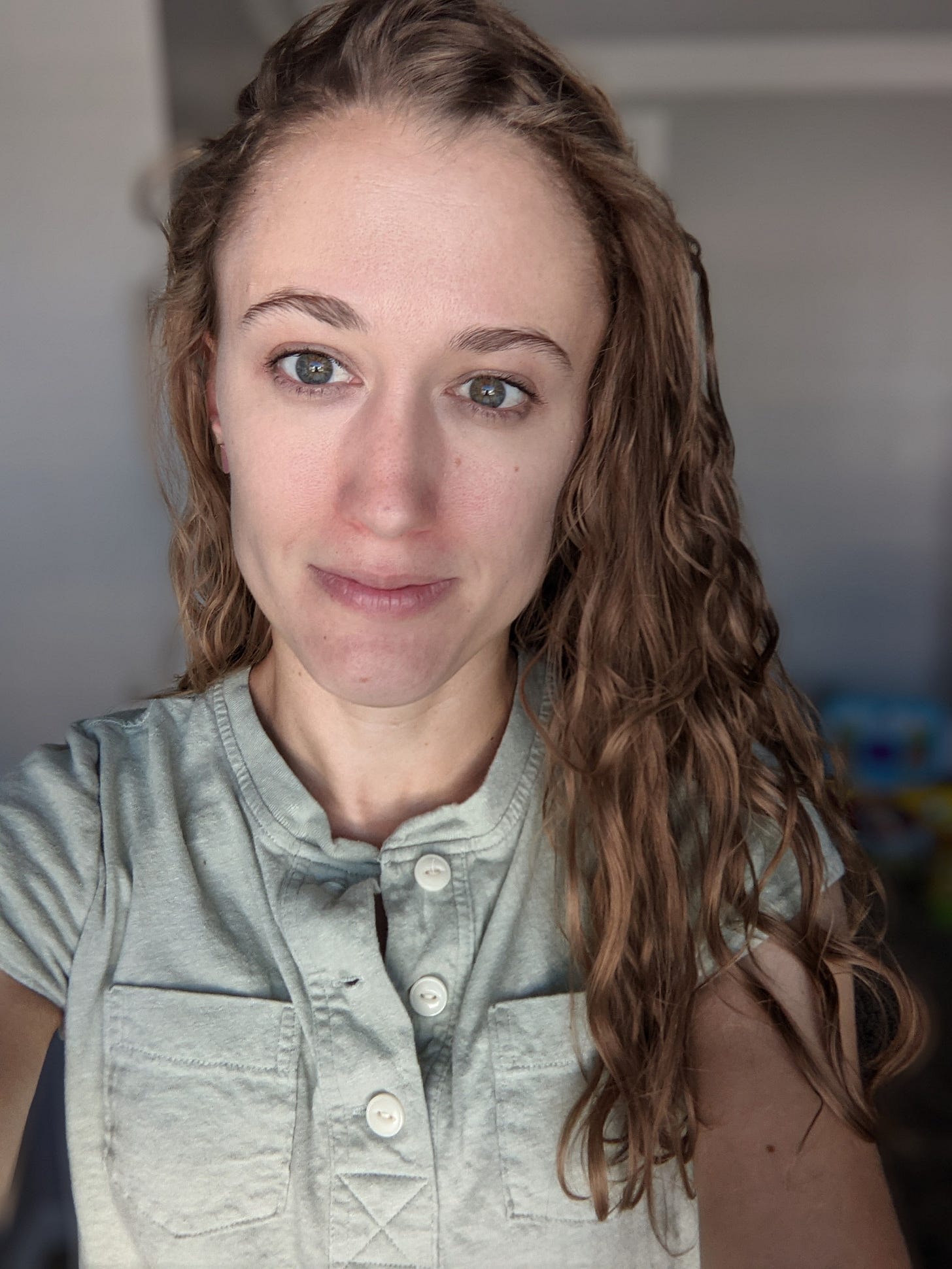

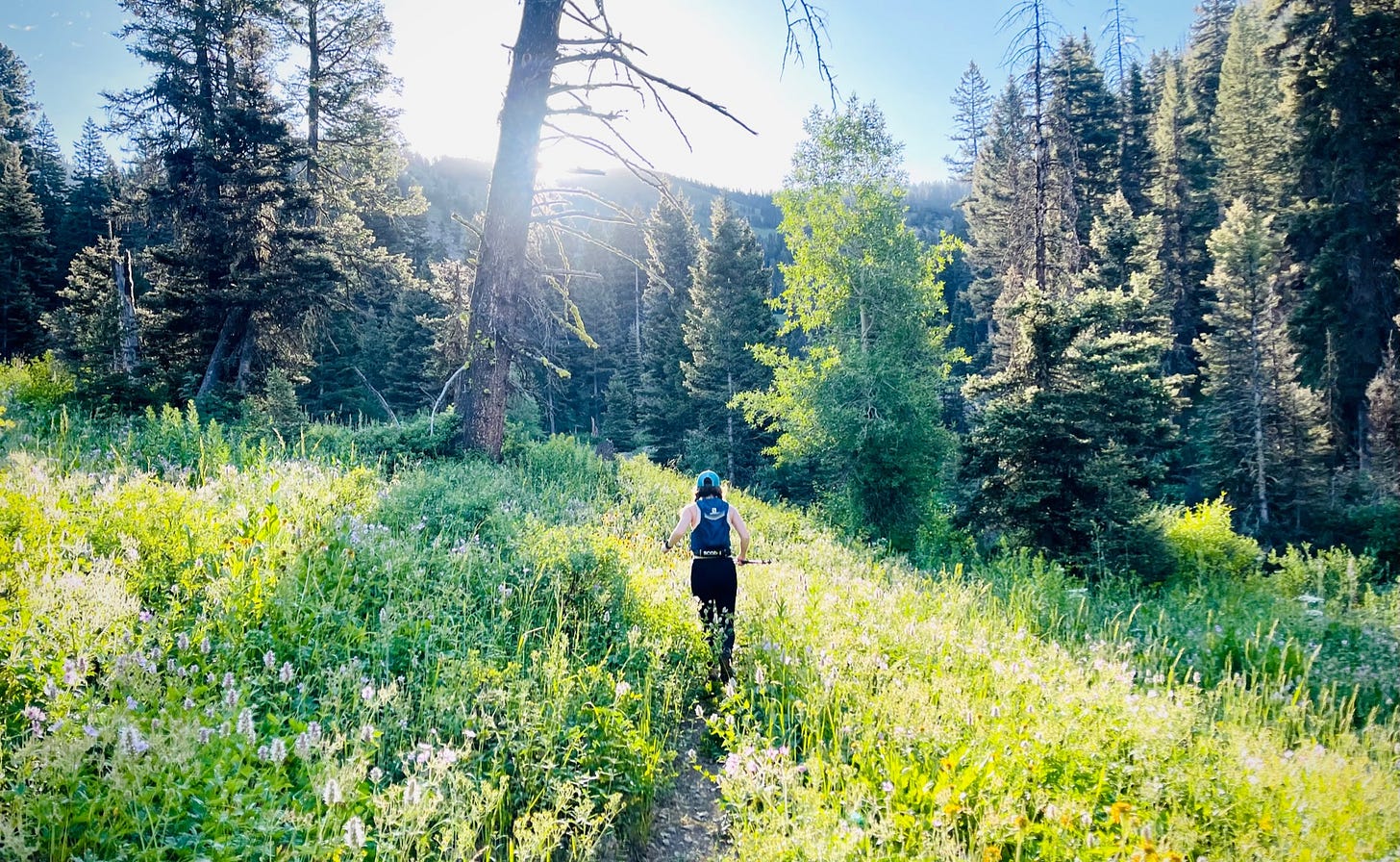
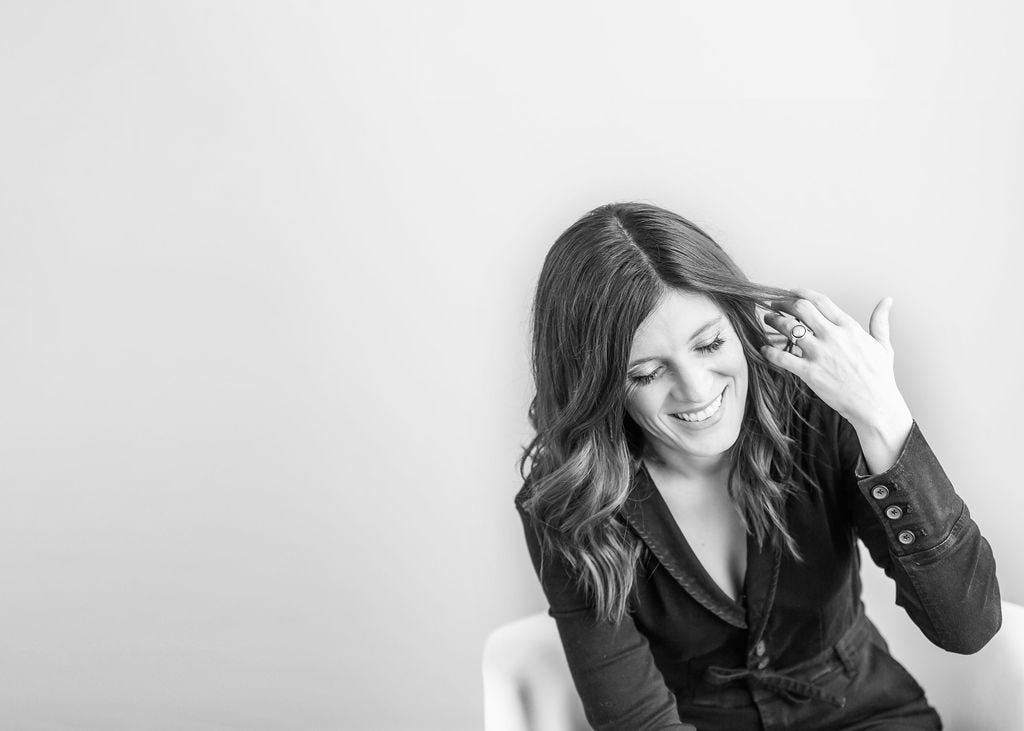

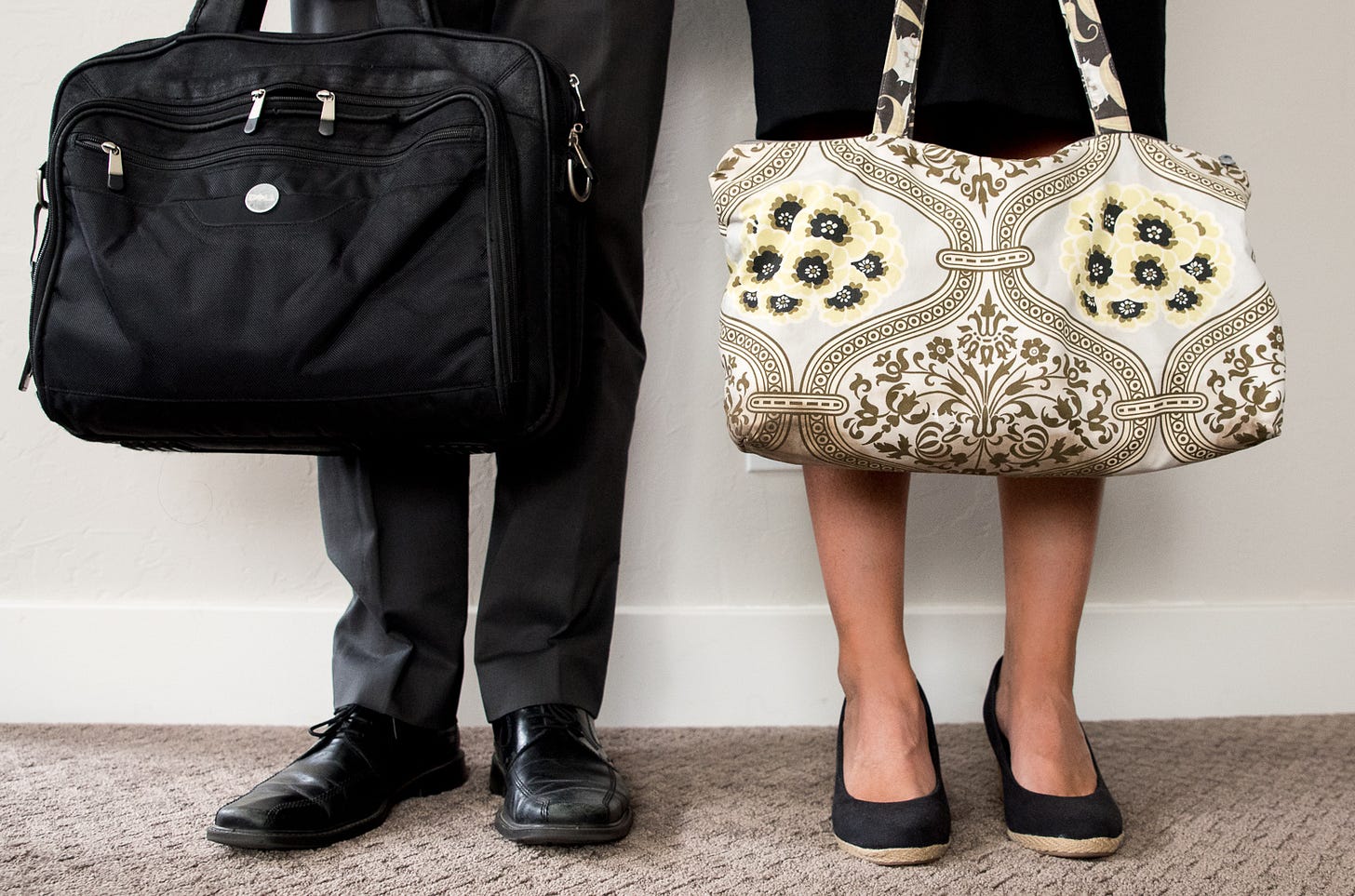

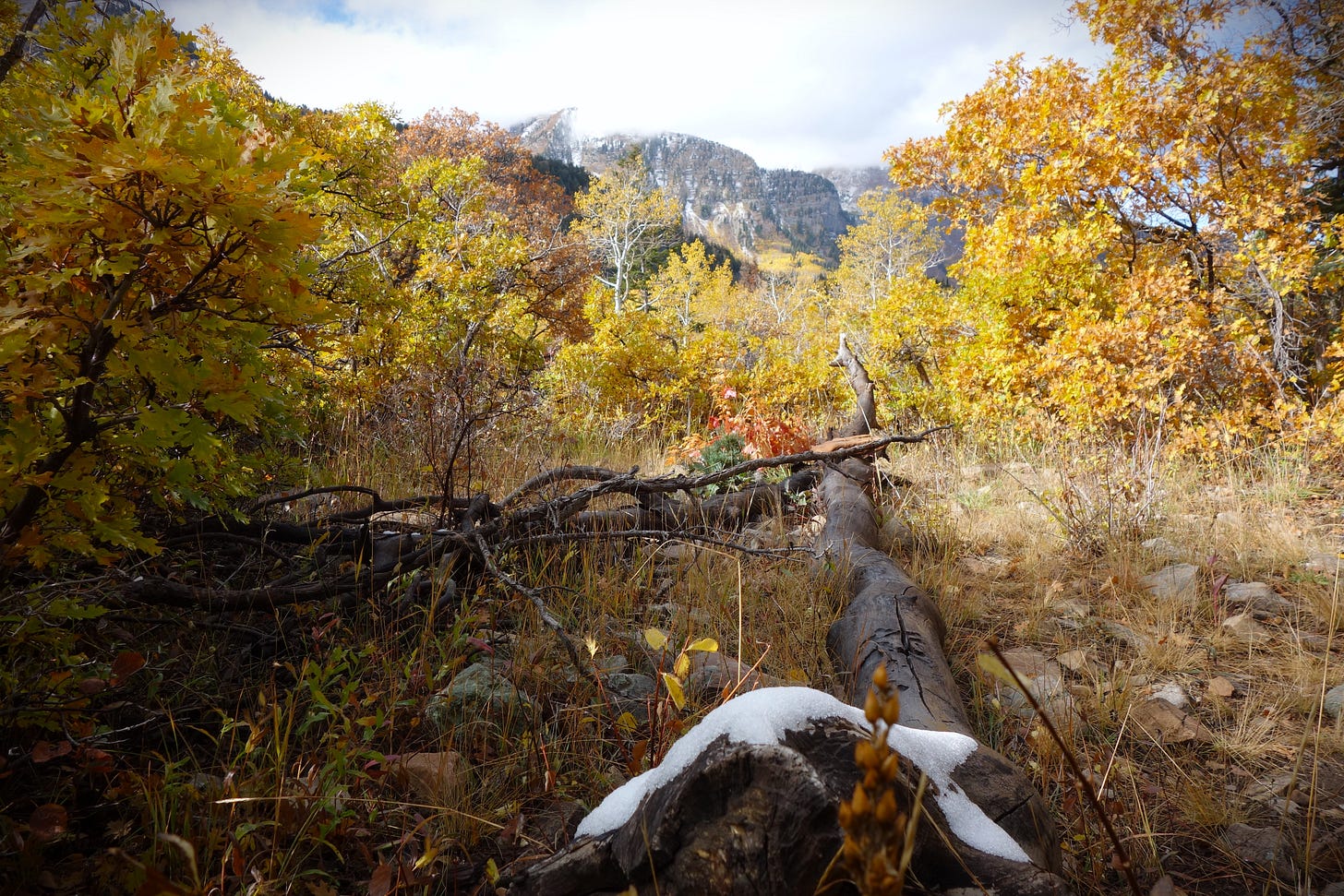
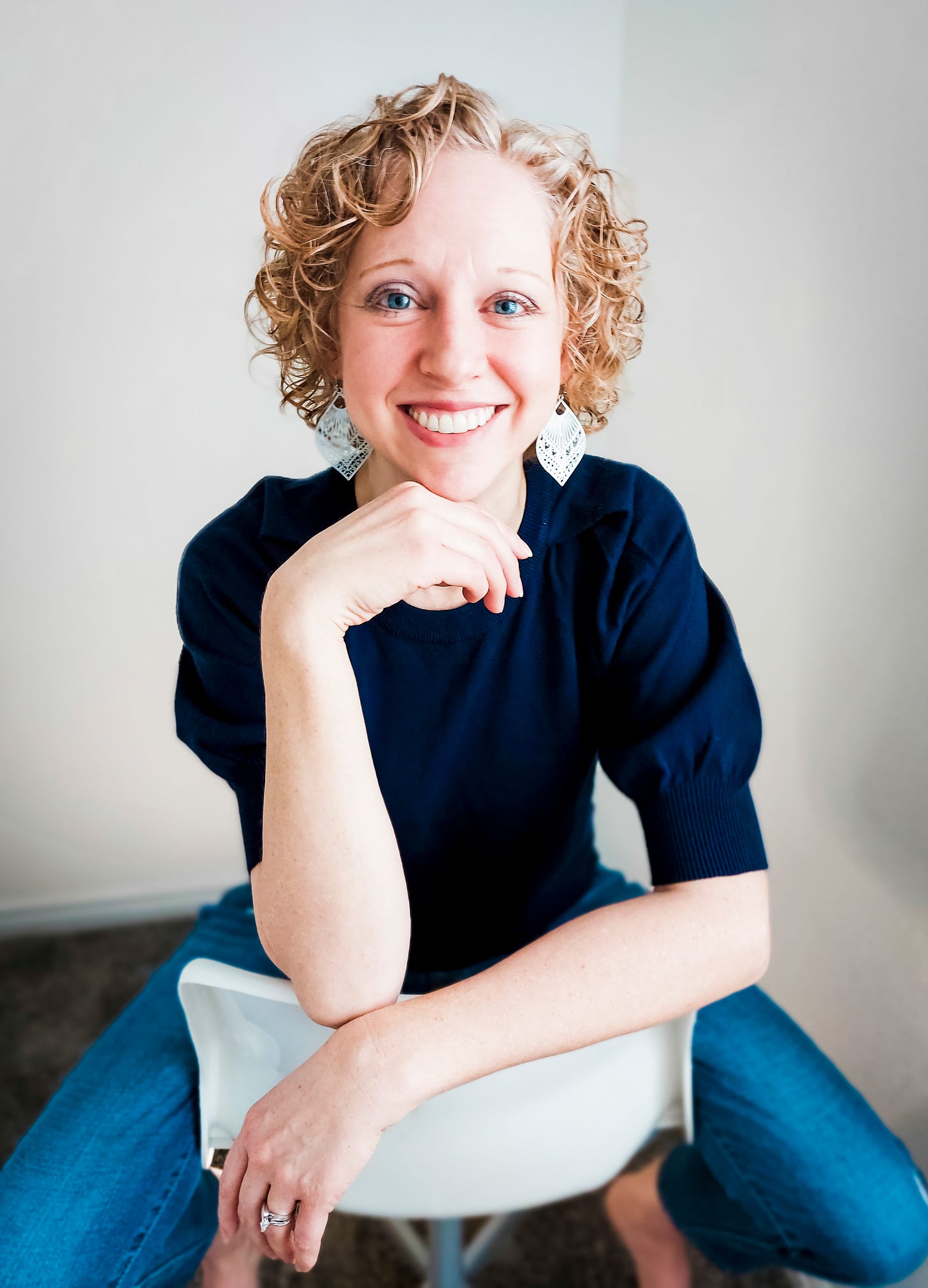






Michelle, thank you for sharing your journal prompts. I am so excited to use them.
Miki, I agree wholeheartedly. I find myself lately using faith muscles I didn't know I had to examine each aspect of the church individually.
I loved each part of this edition, thank you all!
These newsletters are such a boon to my spirit and a perfect follow up to your podcast. I have screen shotted the prayer prompts and plan to use them right away, as my praying, too, has lost all meaning and purpose; it’s just a habit. As I contemplate leaving the church, I need more connection to my Heavenly Parents now, not less.
Miki’s piece about the house of cards, was also very helpful. So much of what I have learned and felt about the church these last years is so disturbing to me, that I find it hard to look at the good parts of the church. Even if I do, in fact leave, it is important to find the good in something I have been apart of my whole adult life.